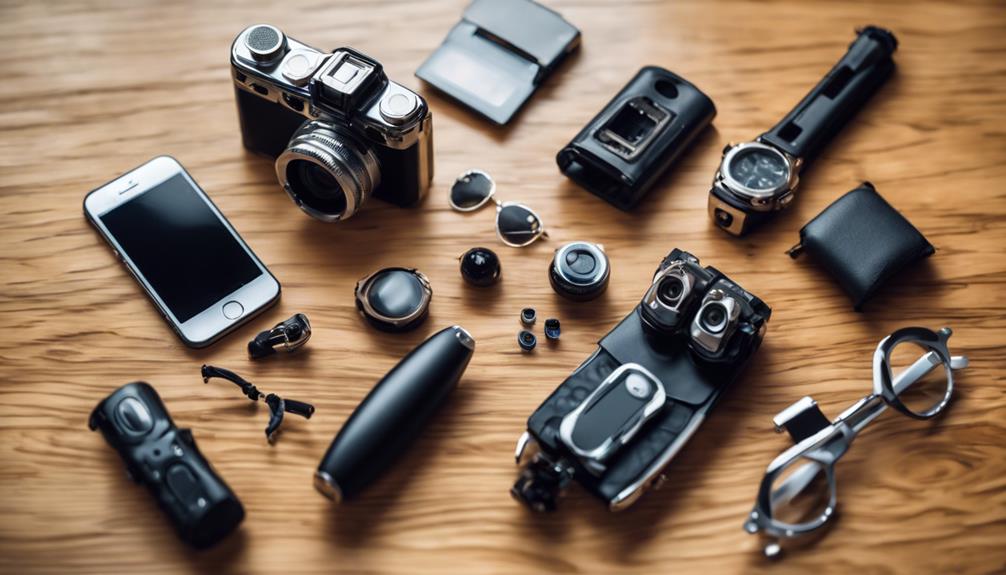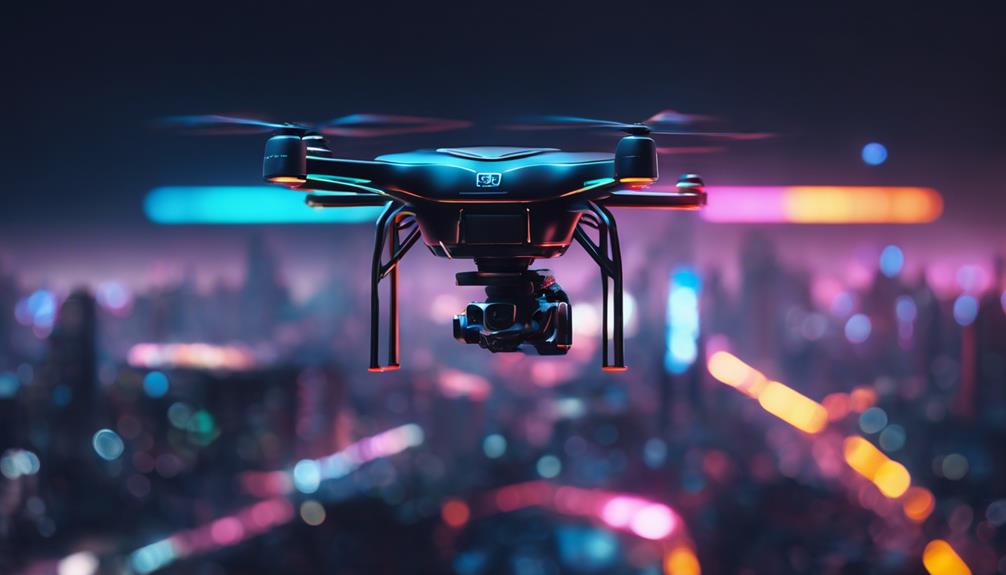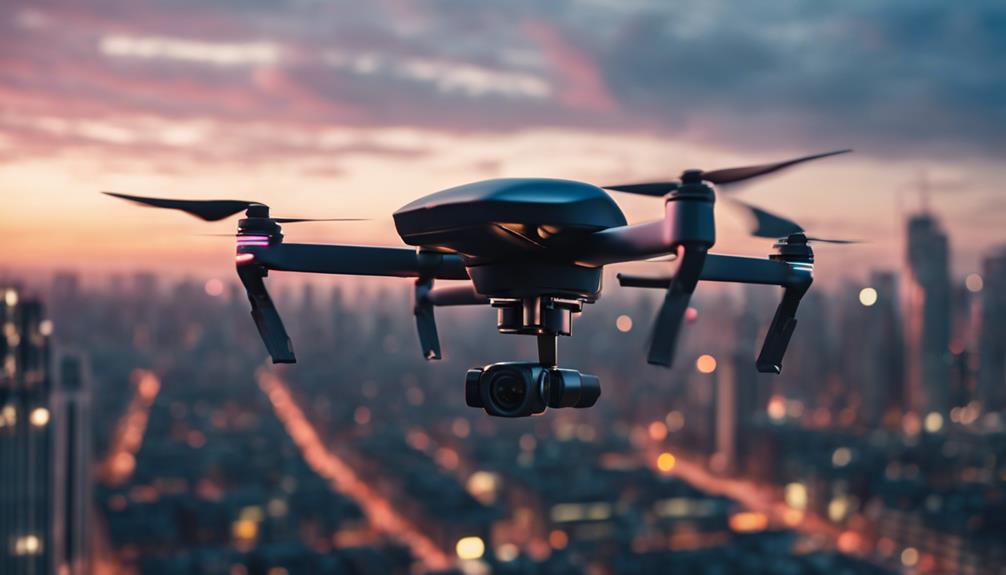
In today’s fast-paced and competitive business environment, ensuring the safety and productivity of your office is paramount. One effective way to achieve this is through the use of spy cameras. These discreet surveillance devices can play a crucial role in monitoring workplace activities, enhancing security, and fostering an atmosphere of accountability. However, the decision to install spy cameras in an office setting should be approached with careful consideration of both the benefits and the implications involved.
This article will explore the various aspects of utilizing spy cameras in offices, from understanding their necessity and benefits to navigating legal considerations and addressing employee privacy concerns. By doing so, we aim to provide a comprehensive guide for businesses contemplating the installation of surveillance systems in their workspaces.
Understanding the Need for Spy Cameras in Offices
As businesses strive to create a secure and efficient workplace, the need for surveillance has become increasingly evident. Spy cameras serve as a deterrent against theft, misconduct, and other forms of workplace malfeasance. With the rise of remote work and flexible hours, many employers are concerned about the potential for dishonest behavior that could harm company integrity and profitability. By implementing surveillance measures, employers can safeguard their assets and ensure that employees are adhering to company policies.
Moreover, the need for spy cameras extends beyond mere security; they also provide a valuable tool for monitoring employee interactions and workplace dynamics. Observing employee engagement and collaboration can yield insights into team effectiveness and productivity. With the right surveillance tools, companies can better understand their internal processes and make informed decisions to optimize their operations.
Benefits of Installing Spy Cameras in Workspaces
The installation of spy cameras brings a multitude of benefits to workplace environments. One of the most significant advantages is improved security. With cameras in place, businesses can deter theft and vandalism, as potential wrongdoers are likely to think twice before engaging in illicit activity. Additionally, having real-time monitoring capabilities allows employers to respond swiftly to incidents, thereby minimizing damage and maintaining a secure atmosphere.
Beyond security, spy cameras can also contribute to enhanced employee productivity. With the ability to monitor workflow and employee behavior, managers can identify areas for improvement and address any inefficiencies. This proactive approach not only fosters productivity but also promotes a culture of accountability among employees, as they are aware that their actions are being observed. Ultimately, the benefits of spy cameras extend to both the protection of company assets and the cultivation of a focused and engaged workforce.
Choosing the Right Spy Camera for Your Office Needs
When selecting a spy camera for your office, it is essential to assess your specific needs and objectives. Different types of cameras are suited for various applications, from hidden cameras that blend seamlessly into the surroundings to overt models that signal their presence. Consider factors such as the camera’s resolution, field of view, and storage capabilities. High-definition cameras with wide angles are ideal for comprehensive coverage of larger spaces, while compact models are perfect for discreet monitoring.
Additionally, think about whether you prefer wired or wireless options, as each has its own advantages. Wireless cameras offer flexibility and ease of installation, while wired systems typically provide more reliable power and connectivity. Analyzing your office layout and identifying the areas that require surveillance will help you make an informed decision and ultimately enhance the efficacy of your monitoring efforts.
How Spy Cameras Enhance Employee Productivity
Spy cameras can serve as an effective tool to boost employee productivity in several ways. Firstly, the mere presence of cameras can encourage employees to stay focused on their tasks, knowing that their performance is being monitored. This can lead to an overall improvement in work ethic and commitment to meeting deadlines. Furthermore, the data collected from surveillance can provide valuable insights into employee behavior, helping managers identify patterns of productivity and areas where additional training may be beneficial.
Moreover, spy cameras can facilitate better management practices by providing concrete evidence in cases of performance disputes or misunderstandings. With video documentation at hand, managers can offer constructive feedback based on actual performance rather than subjective opinions. This promotes a culture of transparency and supports employee development, ultimately leading to higher levels of engagement and morale within the workplace.
Ensuring Workplace Safety with Spy Cameras
The safety of employees should always be a top priority in any workplace. By installing spy cameras, organizations can create a safer work environment by monitoring for potential hazards and ensuring compliance with safety protocols. Surveillance can help identify unsafe practices or conditions that may lead to workplace accidents, allowing for timely interventions to mitigate risks. In this way, cameras act as both a preventative measure and a tool for ongoing safety assessments.
Additionally, in industries where employees are at risk due to the nature of their work or interactions with the public, spy cameras provide an extra layer of protection. They can help document incidents of harassment or aggression, aiding in investigations and reinforcing a zero-tolerance policy for such behavior. By prioritizing workplace safety through surveillance, businesses can foster a culture of care and responsibility, ultimately leading to improved employee wellbeing and retention.
Legal Considerations for Using Spy Cameras at Work
Before installing spy cameras in your office, it is crucial to navigate the legal landscape surrounding workplace surveillance. Laws governing the use of surveillance cameras vary significantly by region, including specific regulations on where cameras can be placed and how the recorded material can be used. Employers must ensure compliance with local, state, and federal laws to avoid potential legal repercussions. Consulting with legal counsel can provide guidance on best practices and necessary disclosures.
Additionally, it is important to consider the balance between surveillance and employee privacy rights. Some jurisdictions may require employers to inform employees about the presence of surveillance cameras, while others may have stricter privacy laws that limit monitoring. Being proactive in understanding these legal considerations not only protects the organization but also demonstrates a commitment to ethical practices and respect for employee rights.
Discreet Spy Camera Options for Professional Settings
In professional settings, discretion is key when it comes to surveillance. Fortunately, there are various discreet spy camera options available that can blend seamlessly into the office environment. Models that resemble everyday objects, such as clocks, smoke detectors, or decorative items, provide covert surveillance without drawing attention. This allows for effective monitoring while maintaining a professional atmosphere.
When choosing a discreet camera, consider factors such as image quality, storage capacity, and connectivity features. Look for cameras that offer high-definition recording capabilities to ensure clear footage, as well as cloud storage options for easy access and retrieval of recorded material. By selecting the right discreet camera, businesses can maintain a sense of professionalism while ensuring comprehensive surveillance.
Tips for Properly Positioning Your Spy Cameras
Effective camera placement is essential for maximizing the benefits of office surveillance. Begin by identifying key areas that require monitoring, such as entrances, common spaces, and high-value asset locations. Ensure that cameras are positioned to capture clear views of these areas without obstructions. Proper angles and heights can make a significant difference in the quality of the footage collected, so take the time to adjust and test placements before finalizing the installation.
Additionally, consider the lighting conditions in each area. Low-light environments may require cameras with night vision capabilities to ensure adequate visibility. Regularly assess the effectiveness of camera positions and be open to adjustments as the office environment evolves. By strategically positioning your spy cameras, you can enhance both security and productivity within the workplace.
Addressing Employee Privacy Concerns with Transparency
As organizations implement surveillance measures, it is crucial to address employee privacy concerns proactively. Open communication is key; employers should inform their staff about the reasons for installing spy cameras and how the surveillance will be used. Providing clarity on the objectives of monitoring—such as enhancing security and productivity—can help mitigate anxiety and foster trust between management and employees.
Additionally, consider involving employees in discussions about surveillance policies. Soliciting feedback and addressing concerns can lead to a more collaborative workplace culture. By prioritizing transparency and open dialogue, employers can demonstrate their commitment to ethical standards and respect for employee privacy, ultimately leading to a more positive work environment.
Maintaining Ethical Standards with Office Surveillance
Maintaining ethical standards in office surveillance is essential for fostering a respectful and cooperative workplace. Employers should ensure that the use of spy cameras aligns with the organization’s values and promotes a culture of trust. This includes developing clear policies regarding camera use, data retention, and access to recorded material. Establishing guidelines that prioritize employee rights while safeguarding company interests can help create a balanced approach to surveillance.
Furthermore, regularly reviewing surveillance practices and policies is crucial to ensure ongoing compliance with legal and ethical standards. This proactive approach not only protects the organization from potential liability but also reinforces a culture of accountability and respect. By striving to maintain ethical standards in office surveillance, businesses can cultivate a positive workplace atmosphere where employees feel valued and respected.
In conclusion, spy cameras can serve as a valuable tool for enhancing security, promoting productivity, and ensuring safety in the workplace. However, their implementation must be approached with a clear understanding of the benefits, legal implications, and ethical considerations involved. By choosing the right surveillance solutions, addressing employee privacy concerns, and maintaining transparency, businesses can effectively harness the advantages of spy cameras while fostering a positive work environment. As you contemplate the integration of surveillance in your office, remember that doing so responsibly can lead to improved operations and a culture of trust and accountability.





